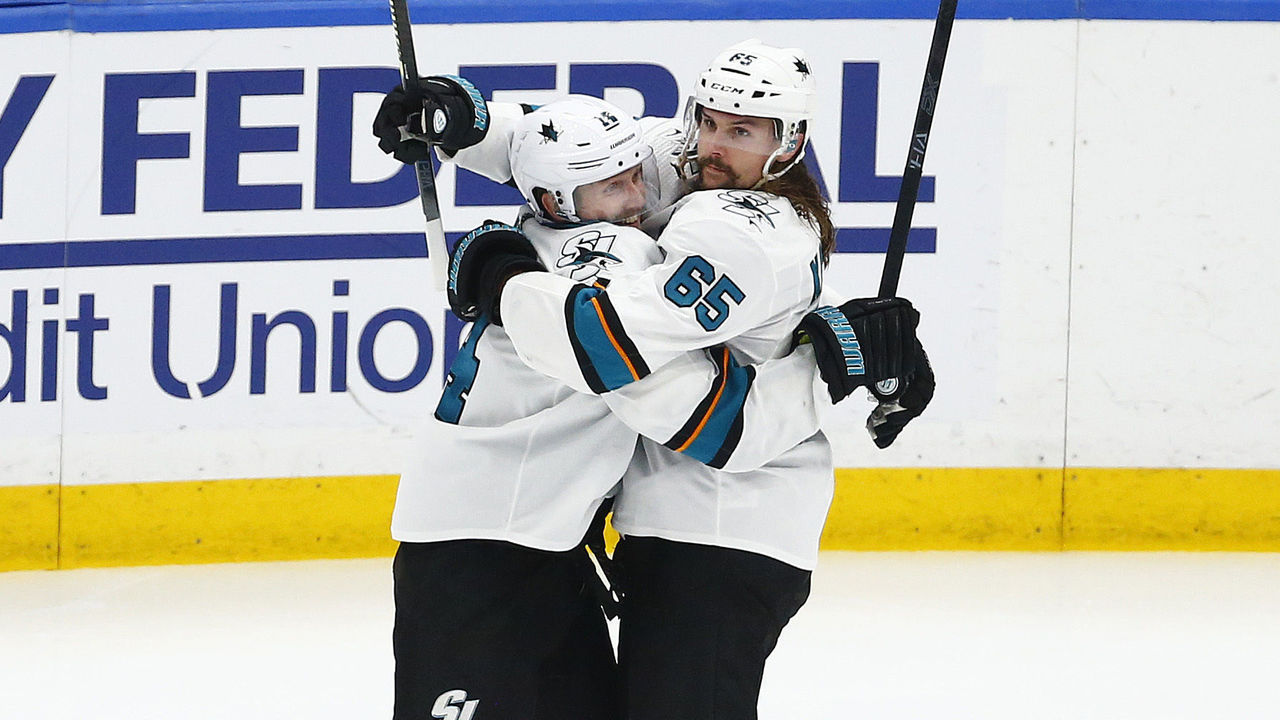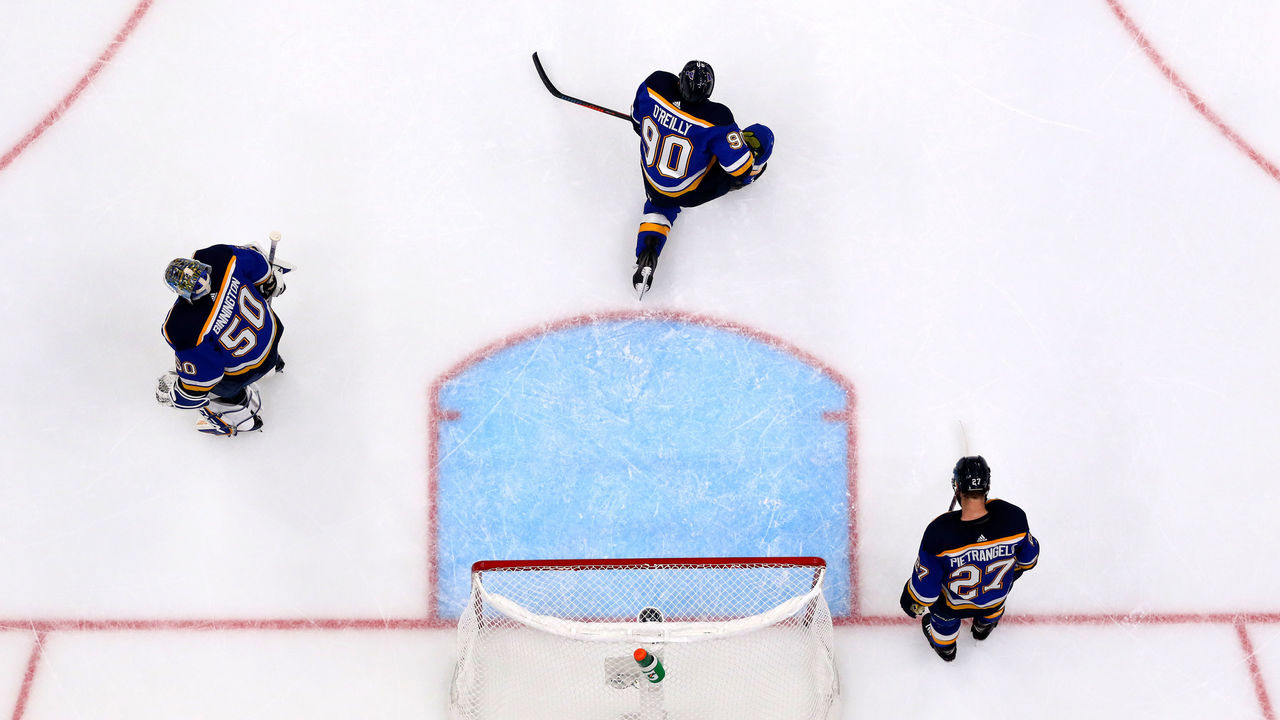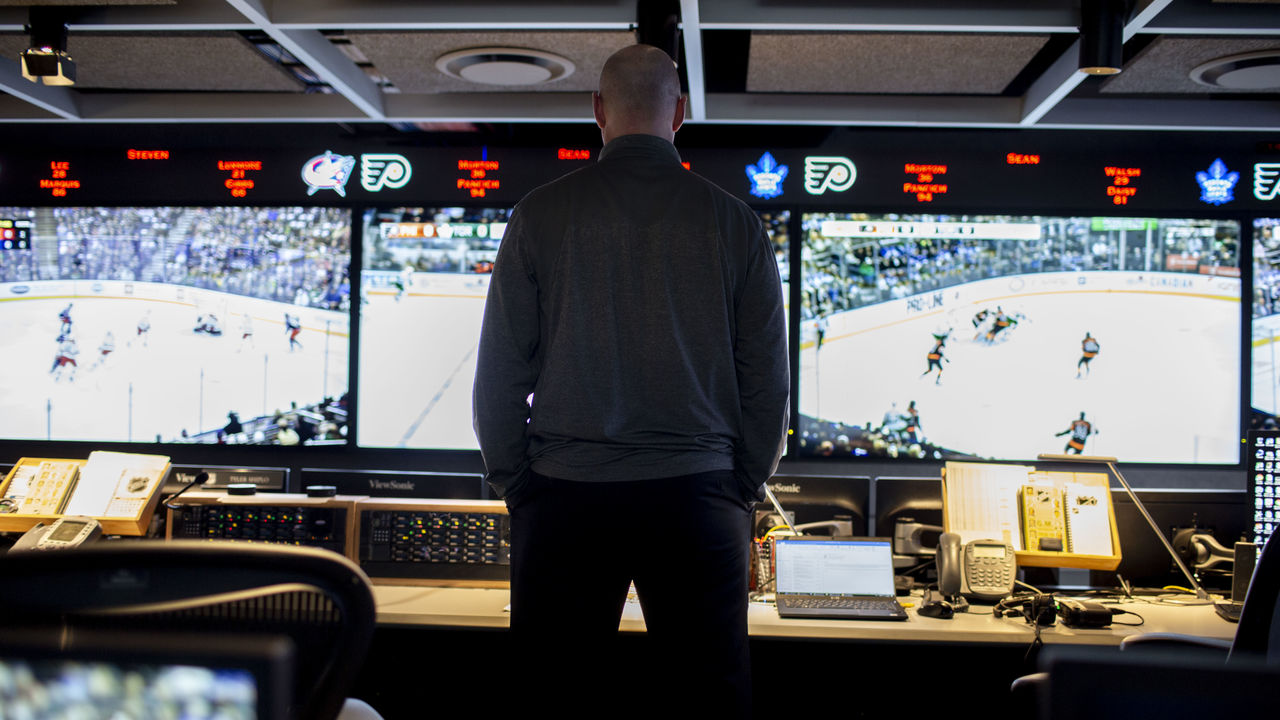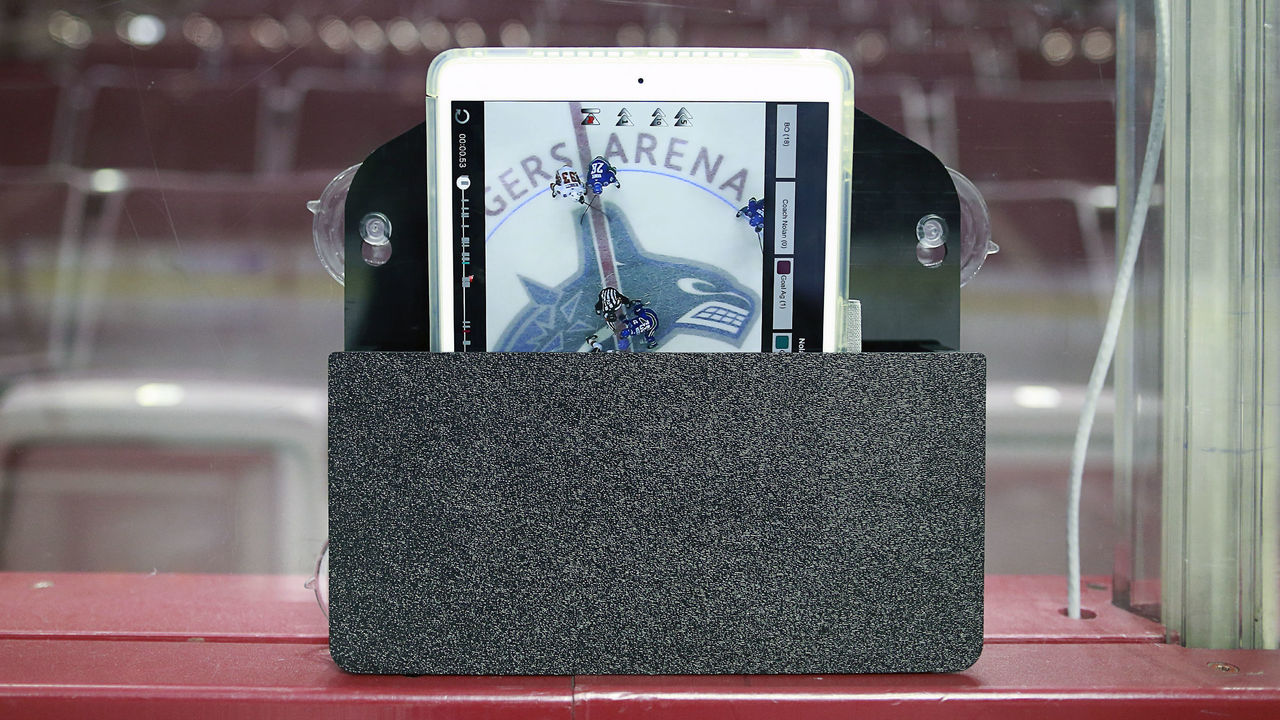Plenty of blame to share after NHL botches yet another major playoff call
The system is broken.
If the National Hockey League, its fans, and the media didn't believe that prior to Wednesday night, the hand-pass debacle in overtime of Game 3 of the Western Conference Final eliminated all doubt.
Officiating shouldn’t be the prevailing talking point following an entertaining 5-4 win by the San Jose Sharks over the St. Louis Blues. It shouldn't have led the discussion after Game 7 of the Sharks-Avalanche second-round series, but it did because of the Gabriel Landeskog offside snafu. There was also the major penalty called on Cody Eakin in Game 7 of the hard-fought Sharks-Golden Knights opening-round matchup, which dramatically altered the final result.
And here we are. Again.
Off the top, let's state the obvious: Wednesday’s on-ice officials deserve a chunk of the finger-pointing. Referees Dan O'Rourke and Marc Joannette and linesmen Matt MacPherson and Jonny Murray all missed Timo Meier’s hand pass that led to Erik Karlsson's game-winning goal and a 2-1 series lead for the Sharks. Those officials are at the top of their profession, they've survived the playoff cuts to work the third round, and they're expected to perform under pressure. They didn’t.

Nobody's perfect at their job, but that doesn’t make the blunder any easier to swallow for the Blues. Afterward, GM Doug Armstrong reportedly yelled profanities at the officials room, head coach Craig Berube sternly declined comment, and captain Alex Petriangelo wondered aloud if there are separate sets of rules for the Sharks, a team that's been on the happy end of all three controversial moments listed above.
So, yes, there are human beings responsible for not blowing the play dead before the goal, and they'll face consequences in the court of public opinion. You'd be hard-pressed to find someone in the hockey world who doesn’t believe that the officials - as well-intentioned as they are - screwed this one up. Their superiors can't be pleased.

Which brings us to the NHL and its rule book, which turns the referees' on-ice mistake into something much bigger.
Rule 38.4 states only the following sequences are eligible for video review:
Puck crossing the line
Puck in the net prior to the net being dislodged
Puck in the net prior to, or after, expiration of time at the end of the period
Puck directed in by a distinct kicking motion
Puck directed, batted, or thrown into the net by an attacking player other than with the stick
Puck deflected directly into the net off an official
Puck struck with a high-stick, above the height of the crossbar, by an attacking player prior to entering the goal
To establish the correct time on the official game clock, provided the game time is visible on the video goal judge's monitors
To assist the referees in determining the legitimacy of all potential goals (e.g. to ensure they are "good hockey goals")
You’ll notice all of these plays have something in common: They relate directly to a goal being scored, not to the sequence of events leading up to a goal. Therefore, under the current system, a hand pass such as Meier’s doesn't meet the criteria. (Coach's challenges can involve actions leading up to a goal, but only with regard to goalie interference and missed offside calls.)
This is where the blame game gets tricky.
Technically, the NHL's off-ice decision-makers - from commissioner Gary Bettman all the way down to Sharks-Blues series supervisor Kay Whitmore - are at the mercy of the rule book. They can't ignore it just because of the high stakes, or because the call on the ice was clearly wrong. Making exceptions to the rules is a slippery slope.
(A counterargument to the above: Some refs alter their interpretation of the rule book come playoff time and put their whistle away. Suddenly, fewer penalties are issued and dirtier plays are permitted. If the rule book is being followed with regard to reviewing contentious plays, like offsides and goals, why isn't it being followed in other ways?)

In March, I spent some time in the league's video review center in Toronto (also known as the Situation Room). One main takeaway from that night applies to Wednesday's madness: The rule book is god. There is no wiggle room for adjustments on the fly.
No matter the call, the folks tasked with reviewing it always defer to what's laid out on the page. It's a process with no improvisation. The Situation Room, led by director of hockey operations Colin Campbell, comes to a consensus based on video and rules. That's it. No personal preferences or opinions are considered until after the review is over and the debriefing begins.
In the latest case, since the play was not subject to review, the league's hands were tied. "It's just non-reviewable," Whitmore told pool reporter Jeremy Rutherford afterward. "I know that sounds like a cop-out answer, but that's the truth."
The NHL is not off the hook, mind you. This is a league that has struggled greatly with video review over the years, and the bubble has officially burst. The conversation always seems to circle back to the list of what's reviewable. At this point, given what has transpired this postseason, it's fair to expect more types of plays will be reviewable in the future. But where will the league draw the line?

The argument against additional reviews has always centered on the length of games and fans tuning out because minutes are being spent watching endless replays and officials huddled around an iPad. However, the past month or so seems to have shifted public opinion toward taking the time to get calls right versus being wrong but quick.
What happens next will be fascinating. The NHL's 31 general managers hold the hammer. Along with the board of governors, they have the power to change the way the game is officiated by instituting new rules and guidelines. Could we one day see just two officials on the ice and the other two in the penalty box alongside a monitor, as suggested Thursday morning by Carolina Hurricanes coach Rod Brind'Amour? In the end, as NHL VP of hockey ops Rod Pasma noted inside the Situation Room in March, "The managers are our compass."
The GMs are scheduled to meet in Vancouver on June 20, and you can bet video review will lead the agenda. At this point, our sanity depends on change of some kind.
John Matisz is theScore's national hockey writer.
HEADLINES
- Team USA still finding its footing despite starting Olympics with 2 wins
- USA holds off Denmark to win nervy round-robin clash
- Watch: Denmark scores from center ice on USA's Swayman
- Slovakia takes Group B after late goal in loss to Sweden, Finland's win
- Report: Fiala to have season-ending surgery after Olympic injury